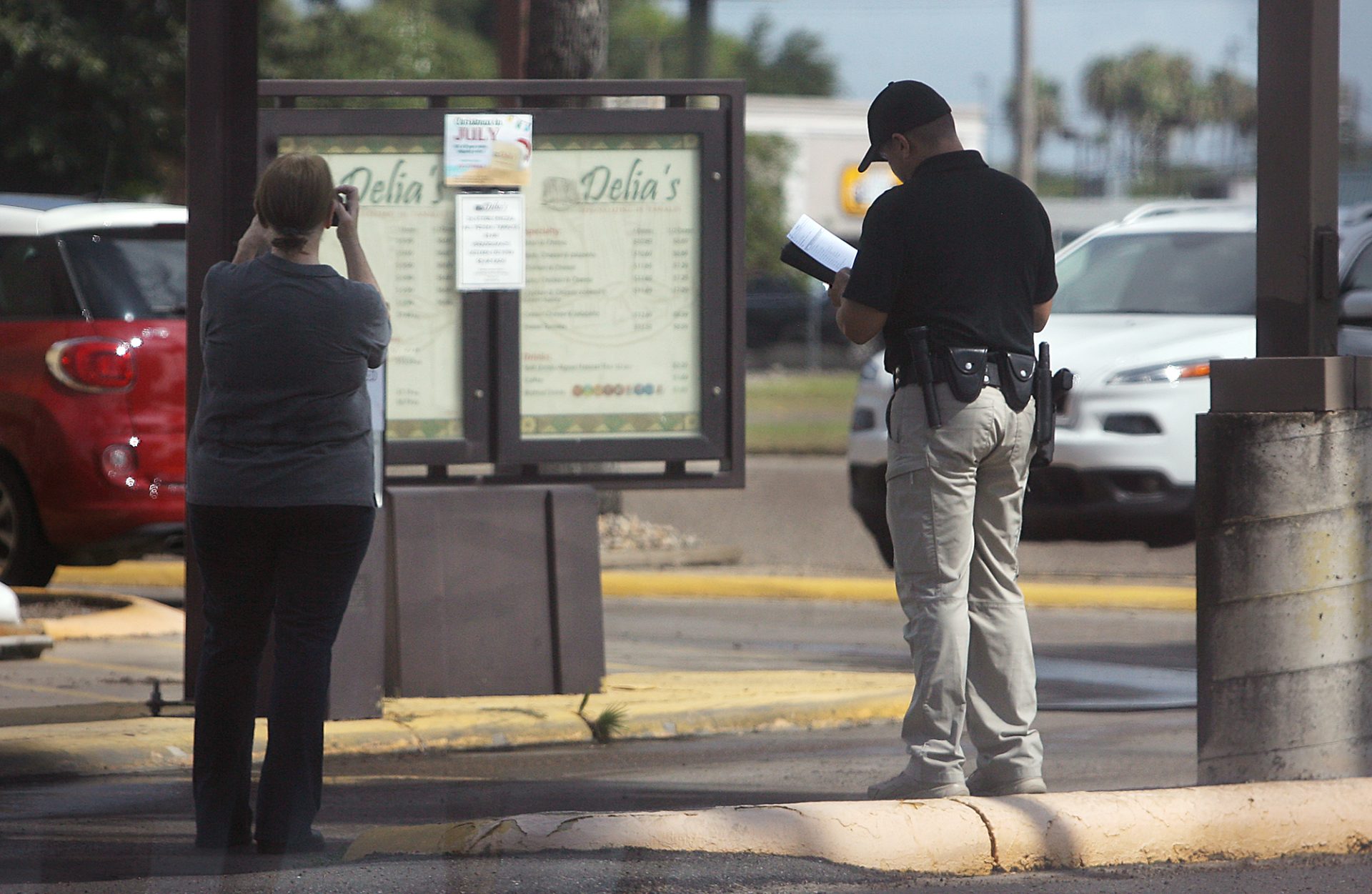
|
Only have a minute? Listen instead
Getting your Trinity Audio player ready...
|
The more than two dozen former employees of Delia’s Tamales who are suing the company over allegations of wage theft will not be allowed to name founder, Delia Garza, as a defendant in the litigation.
Nor will they be able to amend the suit to include a host of new accusations, including that Garza and the company’s highest officers allegedly engaged in racketeering.
On Tuesday, a federal magistrate judge ruled that it’s too late for the now 30 plaintiffs to amend the lawsuit against the beloved restaurant chain, which has locations throughout Hidalgo County and San Antonio.
“(The) Plaintiffs have failed to explain why the amendment could not have been made earlier,” U.S Magistrate Judge Peter Bray stated in a three-page order handed down Tuesday morning.
The 30 plaintiffs had sought the court’s permission to make extensive changes to their complaint, which has already gone through a number of iterations since it was first filed in state district court last fall.
Perhaps the most significant changes the former workers sought was to name the 77-year-old Garza, also known as Delia Lubin, as a defendant in her individual capacity, and to change the classification of the suit itself.
NAMING DELIA GARZA
The former workers hoped to be able to formally accuse Garza of being an active participant in what they characterized as a “racketeering enterprise” that involved the falsification of government documents.
They hoped to allege a complex scheme where the company, led by Garza and the company’s highest levels of management, furnished the workers — many of them undocumented immigrants — with fake Social Security cards and work permits.
The scheme allegedly involved the company withholding Social Security deductions from the employees’ paychecks, then pocketing the money for itself.
At the conclusion of a long career with Delia’s, the workers would then allegedly be met with immigration enforcement threats.
The workers asserted some version of those claims when they initially filed suit last October.
However, those claims disappeared from subsequent versions after the lawsuit was transferred to federal court.
In all the previous versions of the lawsuit, including the version that stands now, Garza’s name — and her alleged involvement — is never mentioned, other than to admit that she founded the company.

COLLECTIVE ACTION
Further, the litigation currently exists as a single lawsuit alleging distinct allegations by the 30 plaintiffs — meaning each person must prove the merits of their individual claims as if they were filing their lawsuits separately.
But the former Delia’s workers tried to change course in a motion to amend the lawsuit filed on Aug. 7.
In that motion, the former workers asked the court to allow them to certify the lawsuit as a collective or class action.
It’s something the former workers, through their attorneys, have pushed back on in the past.
During court hearings earlier this year, it was the attorneys defending the tamale company who heavily implied that the suit was reminiscent of a collective action given the striking similarities of the plaintiffs’ allegations.
“It seemed very cookiecutter,” Lorena Del Pilar Valle, an attorney with Houston law firm, Porter Hedges, said during a hearing in May.
Valle was referring to details included as part of affidavits filed by many of the plaintiffs during the early stages of the lawsuit.
“All of them either said they worked every single day from 5 (a.m.) to close, or they worked 15 hours a day,” Valle added.

TOO LATE NOW
At the time, the lawsuit was still largely in its infancy. Neither side had sat witnesses down to record sworn testimony via deposition. Documents, such as bookkeeping records, had yet to be shared.
Judge Bray used that May hearing to set deadlines for completing such evidence gathering, declaring the discovery process must be wrapped up by the end of August.
In the order he handed down Tuesday, Bray made note of those long-lapsed deadlines, explaining that a court cannot give a plaintiff permission to bust deadlines without very good reason.
Bray was blunt. The former workers had not provided “good cause.”
“Plaintiffs have not addressed the good cause standard. The court does not find good cause,” Bray stated.
Further, the judge sided with Delia’s Tamales in its argument that so radically altering the lawsuit would be tantamount to turning the entire suit on its head. It would force both sides to restart the clock and begin anew.
“(A)llowing the amendment now, after discovery has closed … would severely prejudice the Defendant (Delia’s Tamales,” Bray stated.
“The amendment would substantially alter the case, would require reopening of discovery, and would require motion practice on the proposed collective action,” he further stated.



